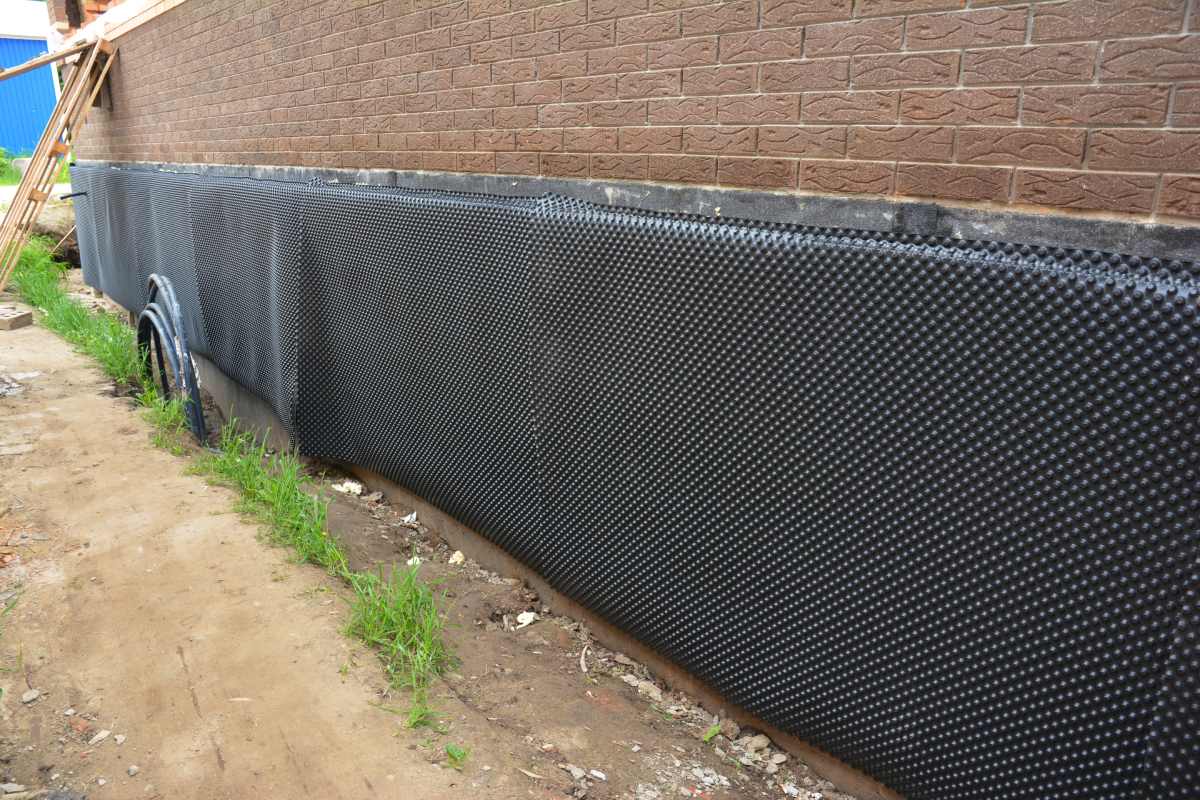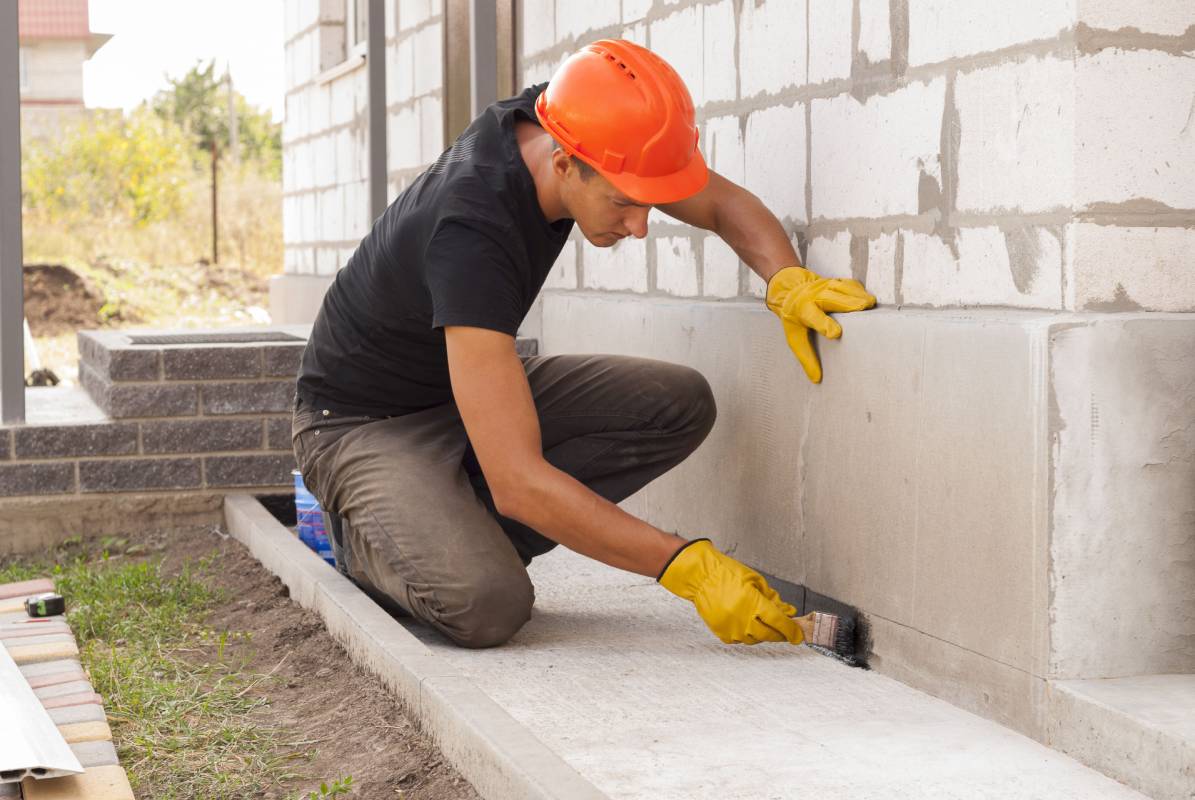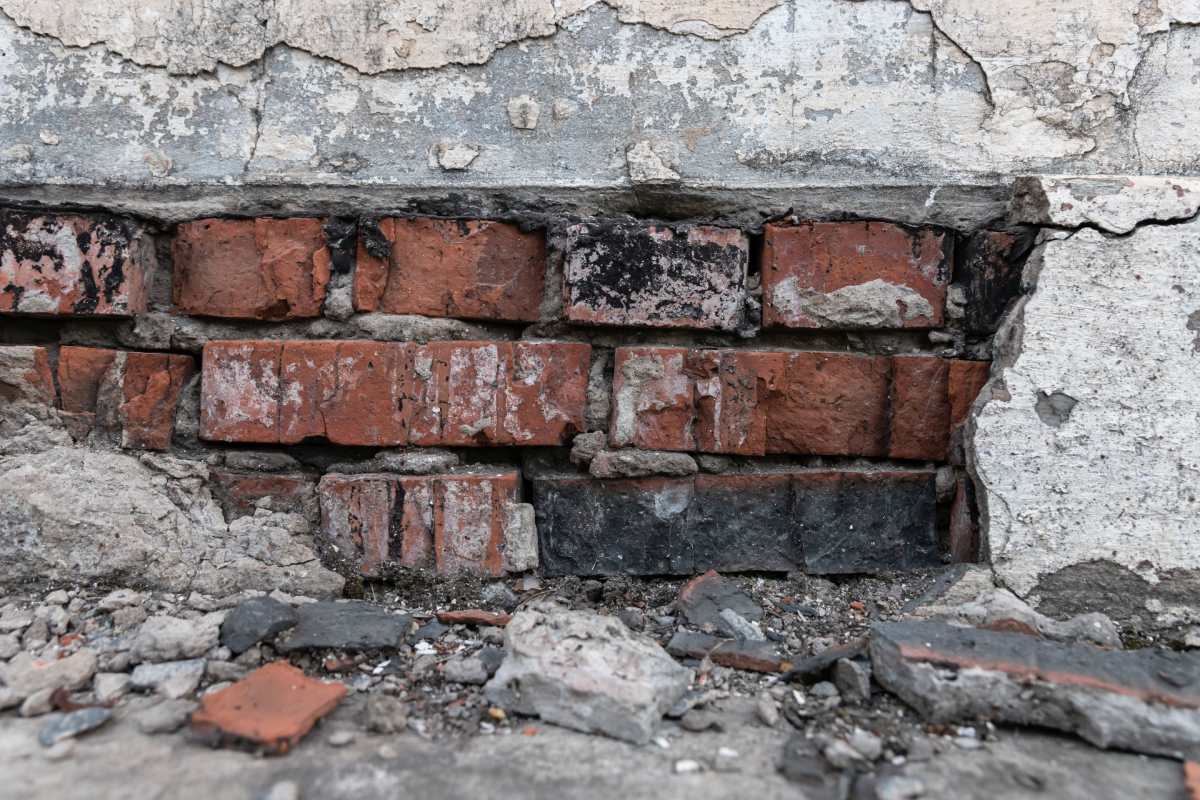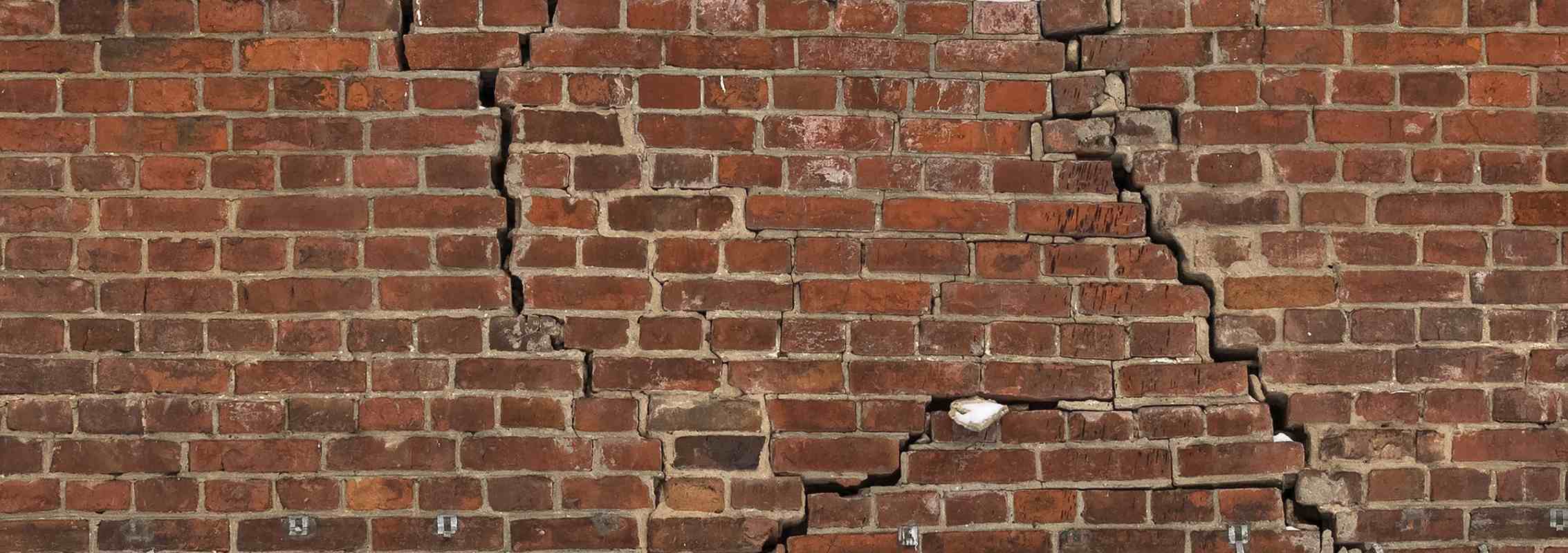
Bowed Walls
If you’re like most homeowners, you probably don’t think much about the structural integrity of your home until there’s an issue. And if you start to notice that your walls are beginning to bow, it can be pretty alarming.
Bowing basement walls is a significant problem for homeowners, especially if they are happening on a block foundation. If left untreated, bowing walls can lead to structural damage and even mold growth in your home.
Let’s find out what causes wall bowing and what you can do about it. We’ll also cover some tips for preventing this from happening in the first place. If you’re concerned about your home’s foundation, keep reading!
What Are Bowed Walls?
The term “bowed” refers to any wall that curves or bends outward from the foundation. It can happen due to settling, moisture, or other factors.
Bowed walls are a type of foundation movement caused by soil pressure. The leading cause of soil pressure is water buildup under a structure.
Water buildup can happen because of poor waterproofing, inadequate drainage, damaged gutters, high rainfall, or clay soil.
Once the water starts to accumulate in one area, it causes pressure on that area of your foundation and begins to push it out. Over time, this pushing force bends and bows the foundation wall out of place.
If you’ve observed this kind of movement in your home’s foundation, there’s a good chance that you’re dealing with bowing walls.
The amount of bowing can vary based on the building material being used. For example, concrete foundations tend to bow less than brick or stone.
If you see any signs of bowing in your walls, it’s vital to take action right away. The longer you wait, the worse the situation will get.
Causes Of Bowed Walls
Several factors can cause your basement wall to bow. When moisture builds up in the soil, it causes soil to expand, which results in excess hydrostatic pressure on the foundation. This is what makes the walls bend or curve.
Some of the most common causes include:
#1. Poor Drainage
If you have poor drainage around your home, it can cause the soil to become waterlogged. This may lead to bowed foundation walls, split footings, or even cracked slabs.
#2. Damaged Gutters
If you have clogged gutters or missing shingles on your roof, it can lead to water damage. The soil around your home may be weakened due to this kind of damage.
#3. Clay Soil
Clay soil expands and contracts as the moisture within it changes. Water damage can weaken clay soils and increase hydrostatic pressure on your foundation walls if they don’t drain properly.
#4. Poor Construction
If the foundation was built using poor construction techniques, it could lead to bowing. This includes using improper materials, installing the foundation incorrectly, and failing to install proper rebar reinforcement.
#5. Heavy Rain and Strong Winds
If your home is exposed to heavy rain or strong winds for extended periods of time, it may cause bowing.
#6. Tree Roots
Tree roots can also contribute to bowing basement walls. When trees grow near your home, their roots can push against the foundation, causing it to bend. Tree roots can also erode the soil and cause your foundation to shift.
As you can see, there are several causes of bowing walls. However, it should be fairly easy to fix once the source is identified.
How To Identify If You Have A Bowed Wall?
If you’re having problems with a bowed wall, you should be able to notice a severe bend in your foundation. In some cases, you may have a slight bend rather than a more severe one. The bowed portion of your foundation will be closest to the source of the problem.
To identify if you have a bowed wall, you’ll need to look at the following areas:
- You’ll want to check out the foundation itself. Look for cracks, bulges, dips, or other signs of movement. The soil beneath your house may have shifted over time.
- You’ll also want to check out the footing. If the floor looks like it’s been pushed inward, you probably have a bowed foundation.
- Next, you’ll want to look at the structure itself. Check out the corners, windows, doors, chimneys, and any other area for visible signs of distress.
- A final way to determine whether or not your foundation is bowing would be to look at the exterior of your home. If you detect any exterior cracks, you might want to call an expert. They will know how to repair these kinds of problems.
Our trained specialists can install wall anchors to correct structural instability without the cost of the brand new foundation.
They will be able to use proven techniques and state-of-the-art equipment on your bowing wall repair.
What To Do If You Have A Bowed Wall?
If you see a bend in your home’s foundation, you’ll want to take steps to fix the problem as soon as possible. If not, you could end up with more serious foundation damage.
Bowing walls mean that you have at least one other issue with your home’s foundation. If this is the case, you’ll want to contact a qualified waterproofing specialist as soon as possible. The contractor will look at your foundation and determine precisely what’s causing this type of movement.
Once the contractor has a chance to investigate your home’s foundation, they should be able to recommend a course of action. Our team will give you a free estimate of the work that needs to be done.
Whether it’s repairing the foundation, shifting your home’s position on the property, or fixing any other problem with your foundation, you can get a professional opinion from one of our waterproofing experts.
If you’re looking for a qualified foundation repair specialist, call us today at (865) 410-1077 for a free inspection. We have more than 17 years of experience in the waterproofing industry. We can repair any foundation damage, including bowing walls, drainage problems, and all types of crawl space flooding.
Can Bowed Walls Be Repaired?
Yes, there are several ways to repair bowed walls.
When you contact a waterproofing specialist, they will inspect the problem and recommend the right course of action.
Our expert will first identify and fix the source of the soil pressure against the foundation and then shift the house back into its original position.
This can be done in the following ways:
- Reinforce your foundation
- Install additional support beams
- Install wall anchor system
- Use carbon fiber straps
- Repoint brickwork

In most cases, bowing walls are relatively easy to fix. In other words, the cost of repairing your foundation will be much less than the cost of building a new one. This is why it’s so important to check your foundation carefully and fix any leaks or cracks you discover.
If you have a bowing wall, it may be time to call a waterproofing expert. They’ll determine the source of bowing walls and suggest a solution.
Preventative Measures For Homeowners
If you want to prevent any future issues with your home’s foundation, there are several steps you can take.
Interior Waterproofing
Bowed walls can be prevented by waterproofing the basement. The walls lose their integrity when excess hydrostatic pressure is applied to them. This can happen when moisture seeps inside and soaks into walls.
To prevent this, homeowners should make sure the foundation is waterproofed. Waterproofing removes moisture from a house’s foundation and reduces the pressure buildup.
It also prevents basements & crawl spaces from flooding.
Install Sump Pumps
It’s a good idea to install a sump pump in the home, especially if you live in an area that gets a lot of rainfall.
A sump pump can remove excess water from the foundation and prevent it from seeping inside, lowering the hydrostatic pressure.
You can hire a professional to install the sump pump.
Fix Cracks
Cracks in concrete or brick walls can lead to severe structural damage. They may also allow water to seep between the bricks and deteriorate the wall over time. If you notice any cracks on your walls, you should get them fixed right away.
You can use mortar and cement to fill in small cracks. However, if there are more significant, you will need to replace the damaged parts. To repair large-scale cracks, you should hire a professional who has experience repairing cracked foundations.
This is because the crack can be an entry point for moisture, which will lead to bigger issues.

Other Measures
- You may want to consider some soil stabilization as a preventative measure in some cases. These are very affordable and well worth the cost to protect your home’s foundation.
- If you’re planning on doing a major renovation project, such as adding a second story or extending your kitchen, you’ll want to make sure that you hire a qualified contractor. This way, you can avoid making costly mistakes.
- Another thing that you’ll want to consider is using concrete blocks instead of bricks. Concrete blocks tend to last longer than bricks and are more durable.
- Lastly, you’ll want to protect yourself from extreme weather conditions. If you live in an area prone to flooding, you’ll want to elevate your home. This way, you’ll prevent water damage and other issues.
The best thing you can do to prevent bowing walls is to maintain your home’s foundation. By taking care of the soil surrounding your home, you can prevent moisture from building up against the walls.
If you’ve noticed horizontal cracks, it’s essential to take steps immediately.
A licensed waterproofing contractor can identify the root cause and offer a suitable solution.
Contact DryTech Waterproofing Solutions!
At DryTech Waterproofing, we specialize in fixing your damaged wall by installing foundation wall anchors, repointing brick veneer, adding waterproof membranes, and more.
Contact Us today at (865) 410-1077 for a free estimate. Our team of experts will visit your property and give you a full assessment of your situation.


